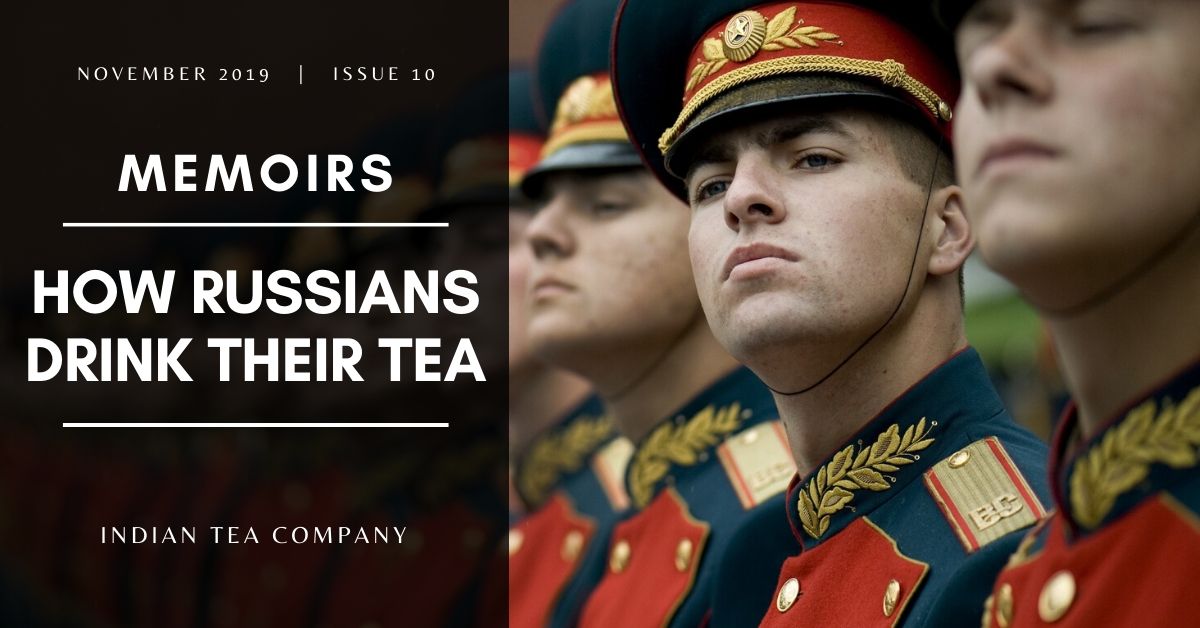History and a Cup of Sulaimani: The Story of an Unusual Tea From Kerala
An ambrosial tea full of fresh flavors, Sulaimani chai is admired by many, especially in southern India. But few fans know the fascinating tales behind this tea.
“Life is like a cup of tea,
It’s all in how you make it.”
It’s all in how you make it.”
– Author Unknown
Languages blend, borders melt and cultures meet. All over a steaming cup of chai, a beverage that bridges an intensely multi-cultural society, and apparently does a good job at that.
In India, this humble agent of social interaction can be found across the country in little roadside shops. These unpretentious outlets often serve the cheapest and the most delicious types of tea. And among this illustrious list of tea varieties is the delightfully refreshing yet oft-overlooked Sulaimani chai.
Brewed to a beautiful shade of amber, Sulaimani chai is an ambrosial tea made without any milk and served with an invigorating dose of lemon. You may often find a mint or basil leaf floating within, infusing it with fresh herby flavours and a heady aroma. Or, in some cases, a sprinkle of ground cardamom and cinnamon may be added.
Either way, the concoction is superb and admired by many, especially in southern India. But few fans of Sulaimani chai know the tale of how this tea got its name.
According to folklore, Sulaimani tea is believed to have Arab origins. It is said that Prophet Mohammed used to enjoy drinking a beverage called ghava with dates and black pepper (but no tea) added to it. With time, the Arabs inherited the tradition of drinking ghava but made some slight changes to the ancient recipe.
Later, the beverage was brought to the southern Malabar coast of India by Arab traders who were frequent visitors there. The cultural intermingling that followed led to the addition of local spices and the replacement of dates with sugar. Somewhere along the line, tea was added to the drink.
It was also in Malabar that it started being called Sulaimani — in Arabic, the name Sulaiman translates to “man of peace”.
Interestingly, people looking for authentic Arabic ghava should head to Barkas, an area in Hyderabad’s old city known for its strong roots in Arab countries. In winter, dozens of outlets and roadside stalls in and around Barkas offer piping hot ghava priced anywhere between Rs.10 and Rs.20 per cup.
Today, Sulaimani chai is often served after heavy meals such as biryani throughout the Malabar region. A great digestive drink, it is also a little-acknowledged but crucial part of marriage menus in the Mappilah Muslim community of Kerala.
Traditional Arabic ghava
No matter how elaborate the wedding feast or that every guest has been stuffed to an inch of his or her life, everyone in this community always has a little room left for a Sulaimani. Simmered to the right shade of gold in huge vats, the tea is served in tiny glasses, occasionally with a few strands of saffron.
So integral is the sunset-coloured chai to the rhythm of life in Kerala that it finds several mentions in the state’s cultural landscape. Legendary Malayalam writer Vaikom Muhammad Basheer would carry flasks full of his beloved ‘Sulaimani’ with him wherever he went. There is even a restaurant called Sulaimani 168 in Thrissur!
The deceptively delicious tea has even made its way to the state’s prolific film industry. In the film, Ustad Hotel, for instance, the protagonist (a young aspiring chef straight out of college) uses cups and cups of Sulaimani chai to bond with his grandfather.
In one of the most endearing scenes from the movie, he sits by the sea with his grandfather and watches the sunrise. Between them sits a kettle of piping hot Sulaimani tea. Moreover, as he watches his grandfather slave over a stove, the protagonist learns to appreciate the smaller things in life.
As the hardworking grandfather says, “Oro Sulaimanilum oru ithiri Mohabbat venam. Adhu Kudikumbol, logam ingene padhukazhai vanu nikenam.” (Every Sulaimani needs a bit of love in it. When you drink it the whole world comes to a standstill.)
This is not all. In 2015, the District Collector of Kozhikode, Prashant Nair, and his team started ‘Operation Sulaimani’ in collaboration with the Kerala State Hotel and Restaurants Association.
Inspired by the Sulaimani chai (described on the mission’s web page as a rare blend of tea, lime and warmth), the initiative’s aim was quite simple — to avoid food wastage and tackle hunger with ‘dignity’.
People in need could collect a free meal coupon from any of the distribution centres and walk into any restaurant in the city – a meal would be served, no questions asked, no explanations sought. Till date, this entirely volunteer-driven project has catered to more than 40,000 beneficiaries.
It appears that a cup of tea can truly change lives!
Source - THE BETTER INDIAN






Comments
Post a Comment